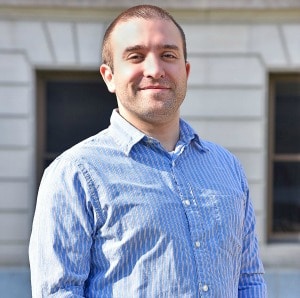
(By Ryan Wrecker) When I was in high school, podcasting wasn’t an option. Small-market stations were still deciding if they wanted to invest money to build a website. But even if the technology to affordably host audio wasn’t available yet, the underlying concept of how to use that upcoming technology was. Some broadcasters took advantage, while others held off.
There’s wisdom in the strategies broadcasters use to understand their demographics and cater to their audience. It shouldn’t surprise you that this can also apply digitally. We’re now at the point of having to relearn our audience, if we haven’t done so already.
Think about the demographic you’re trying to reach. How do they use a smartphone? How does that smartphone interact with their car? What are their habits when they’re not next to a radio? I spoke to Chris Duncombe, director of streaming and podcasting for Corus Radio in Canada, who says if we don’t recognize and treat a podcast audience differently, we’re not going to get anywhere; he adds, “We’ve done a lot of work to reformat certain shows to make them great podcasts.”
That doesn’t mean every radio show will make a great podcast. Duncombe advises, “I would suggest that thinking about a singular podcast from your brand that you rally the entire station around is far more important than three or four shows that are putting out podcast-ish radio-on-demand content.” He says to think about how to find a natural extension of a personality that allows them to harness a niche audience.
Radio veteran Larry Gifford, now a senior program director for Corus Radio Vancouver, has seen it from both sides. His new podcast, When Life Gives You Parkinson’s, chronicles the changes in his life since his diagnosis, as well as the struggles and triumphs of the community as a whole. With his storytelling abilities, and backing from the company network, Gifford has seen tremendous success at a very early stage, jumping up the Apple Podcast charts as one of the most popular podcasts in Canada.
“I started out on the weekend overnights, playing songs, talking between breaks, playing weather between the news,” Gifford says. “That shift doesn’t exist anymore. I see podcasting as a big opportunity for broadcasters to develop talent and shows. We’re still doing that now that we have a [dedicated] podcast division at Corus called CuriousCast. We are still looking for the podcast that can jump from digital-only to digital and broadcast.”
In case you’re wondering, the network’s general milestone for success is 100,000 downloads per month, per podcast. Gifford says, “We have the number one Canadian podcast in the country, and it’s getting over 300,000 downloads a month. But we probably have 40 podcasts, and there’s only a handful that’s getting over 100,000 at this point. It’s part of the longer strategy.”
So far, Duncombe’s guiding and networking has paid off. “We’re built to be an integrated podcast network that can build audience quickly, and I think that was a big thing we noticed at the onset as well,” he says. “When we started to focus on original brands to the podcast space, we really started to see some lift. We have a documentary series called The Ongoing History of New Music. That was a huge one for us, and that’s the number one music podcast in Canada on a weekly basis. It just tells great stories.”
None of this would be possible if it were not for having a plan and investing time and resources in the network. “We have decided there is a viable business model, and there’s revenue to be had, so we’ve put dollars against it,” Gifford says. “We’re going to intentionally produce original content, acquire Canadian content that we think fits under our umbrella, and we’re going to go about monetizing it and distributing it as far and wide as we can.”
Duncombe explains, “I think there are radio programs that have a huge appetite from an on-demand audience, and the fact that they do well and there is that appetite is great. That’s not enough to be the podcast network we want to be.” For Corus, that means finding local podcasts outside the radio station and bringing them onto the network as part of a commitment to being the driving force for podcasts inside the market and across the country. As Duncombe notes, “Having a strong monthly base of downloads and large catalogs is a huge opportunity.”
With just under a year of having a dedicated podcast manager at Corus Radio, they’ve made the most of it. Beyond the talented hosts, there’s someone who takes pride and ownership in the product they put out. It’s a unified strategy — one that most of radio has yet to catch on to.
Ryan Wrecker hosts Overnight America on KMOX in St. Louis. Follow on Twitter @RyanWrecker or e-mail [email protected].





